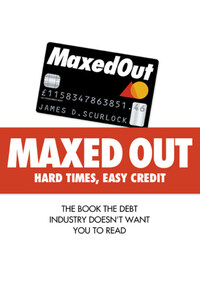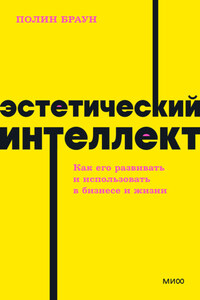VINCENT: You know what the funniest thing about Europe is?
JULES: What?
VINCENT: It’s the little differences. A lotta the same shit we got here, they got there, but there they’re a little different.
“I knew it was bad. I just didn’t know it was that bad.” So I’ve been told countless times now, by those who’ve seen my film, Maxed Out. Usually I smile back in an appropriately patronizing way to confirm that yes, it is that bad; and shame on you for believing it wasn’t! Yet for a very long time, I believed that America was as bad as it could possibly get. Why? Because we are the world’s most infamous over-consumers, or, as our president patriotically spins it, we are the locomotive of the world’s economy. The inspiration for Maxed Out was my fellow countrymen and women—who, incidentally, never needed the title explained to them.
But as it turns out, both the film and this book are rooted in a singular misconception. Because as bad as it is in America, it is much worse in the United Kingdom.
How could this be? It remains more than a little baffling. After all, the UK is the land of free healthcare, free education, the land where understatement, restraint and modesty are time-honored virtues. Even the British colonial model was far more responsible— at least in the purely economic sense—than our own. The British learned to exact taxes from their subjects while we are inclined to borrow from ours—and yours as well, to be honest. And the famous British virtues of rugged individualism and perseverance that we’ve never quite taken to, the same principles that made going broke an offense punishable by execution up until a couple of hundred years ago as our founding fathers—debtors and speculators themselves—were creating what have become the most liberal bankruptcy laws in the world. True, the British invented both tabloid journalism and reality television, and their fetish for royal gossip seems a tad overwrought at times, but it is in my hometown of Los Angeles that paparazzi stalk the boutiques of Beverly Hills, broadcasting the latest clothing and accessories chosen by the latest starlets to the shopping masses, who are expected to pay whatever is demanded for a pair of the right jeans and encrust their cellphones with diamonds. How else to explain $1,500 denims and $200 t-shirts?
So my thoughts did not drift across the Atlantic until a year and a half ago, when an esteemed professor I was scheduled to interview abruptly canceled. He was being flown over to London with the Princeton economist Paul Krugman to commemorate a dubious milestone: Britons’ accumulation of over £1 trillion in consumer debt, i.e. credit cards, car loans, and virtually every other form of credit one can pile on excluding the home mortgage. The British, I was told, were in a panic. Credit card executives were brought before parliament and grilled; the Queen warned of the consequences; the Financial Services Authority was investigating. Yet, if American history served as any guide, Britons would quickly forget their first trillion. Why? First off, because the number is so huge as to be incomprehensible, and, therefore, forgettable; and second, because there is an inertia about debt that is as futile to resist as it is counter-intuitive. Because the more debt, the fewer consequences—at least in the short term. Debt has a smoothing effect and an air of inevitability. When our national debt passed the trillion dollar mark in the mid 1980s, there was a brief uproar, but then Ronald Reagan blamed the media and everyone seemed to forget about it.
I’ve been scanning the British press for almost a year now, searching for clues as to how all of this came about in the first place, as well as to glean some idea of what, if anything, the British government intends to do about it. Over the past couple of years, I’ve found a number of stories which do just that, including the purchase of the most expensive house in the history of mankind (in London), the explosive growth of the collections industry in the UK, the scaling back of government assistance in areas like education and healthcare, including the case of one woman who was denied cancer treatment because of its high cost, a new study showing that the British are learning to rely on their credit cards to buy necessities like gas and groceries, and the ritual berating of financial executives, one of whom, the CEO of Barclays Bank, famously stated that he would not himself use a credit card, which is his bank’s most profitable product.
So living in Britain has become increasingly expensive, health services and other public goods are being reduced (which means that their cost is being shifted onto the backs of the working public), and large, trusted financial institutions are peddling products which they know to be so harmful that they themselves won’t partake of them. In other words, the UK bears a striking resemblance to the United States—and to a lot of other “wealthy” nations as well. If our own history is any guide—and we’ve been playing this game a lot longer than you have—things will get quite a bit worse. Bankruptcies will continue to hit records, people will use high-interest credit as a backstop to keep their places in the middle class (including using credit cards to make interest payments on other credit cards), tabloids and Starbucks will proliferate as arbiters of public taste and wise old souls will observe that the society is regressing into a feudal state with only two classes—owners and renters—while politicians wash their hands and say that nothing can be done because the financial industry is too large and too interwoven into the fabric of society to be regulated.








